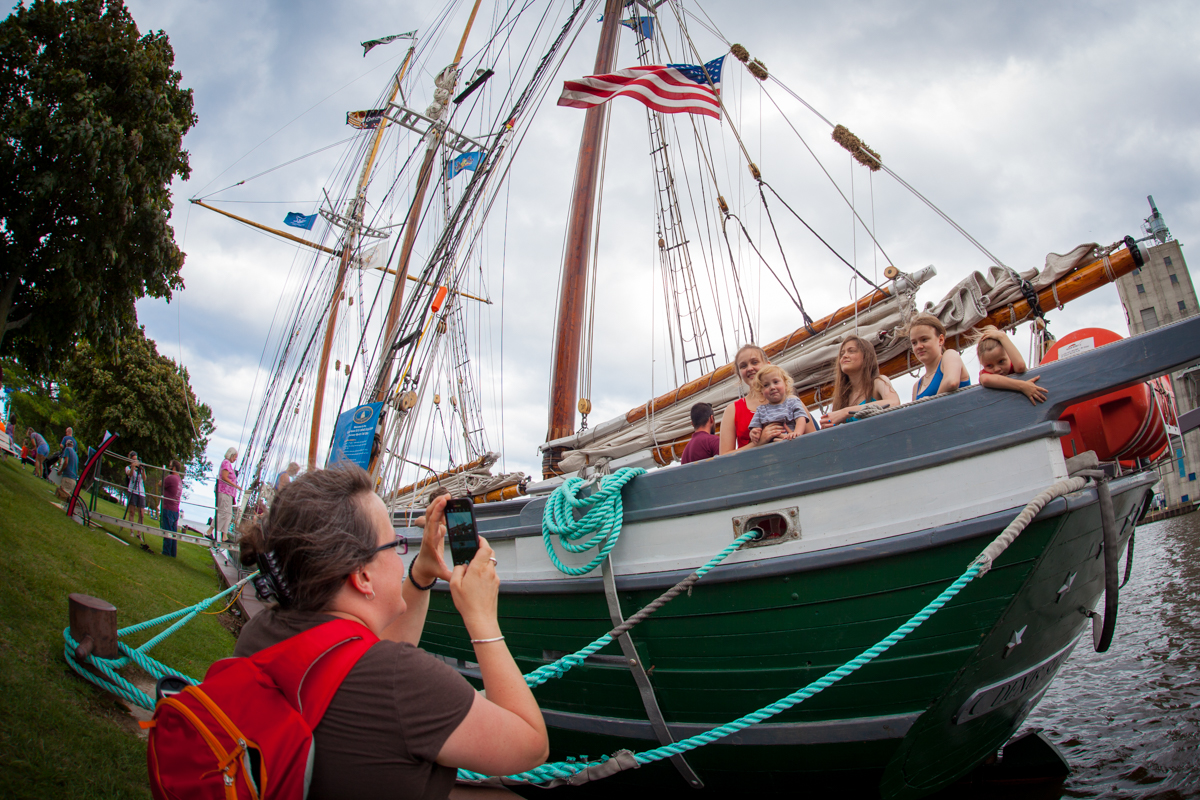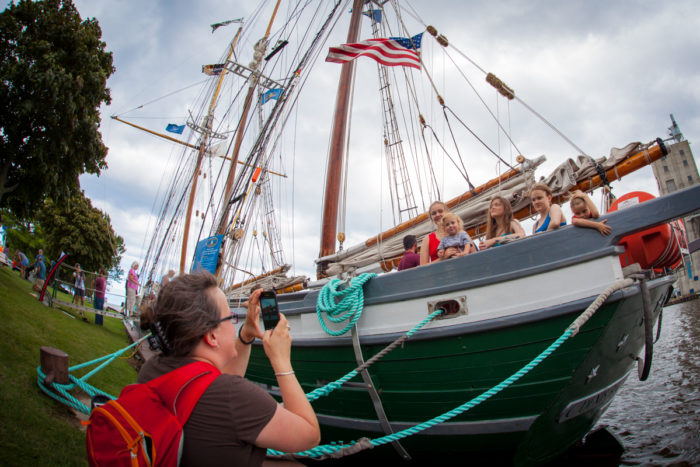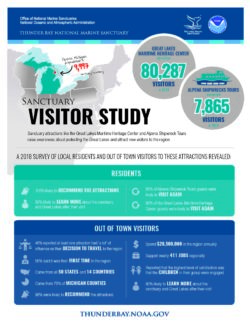
Why a national marine sanctuary would be great for Wisconsin communities

Photo credit: Matt McIntosh/NOAA
In Wisconsin, maritime heritage runs deep.
From the 1800s to the early 20th century, wooden schooners and innovative steel steamships moved raw materials, agricultural products, and passengers over the icy cold waters of Lake Michigan and drove the prosperity and expansion of our nation. Wisconsin communities played critical roles in evolving the Great Lakes from a maritime frontier into the nation’s busiest waterway. Wisconsin boasts more individually listed shipwrecks on the National Register of Historic Places than any other state.
In December 2014, the State of Wisconsin, in partnership with the cities of Two Rivers, Manitowoc, Sheboygan, and Port Washington, and the counties of Manitowoc, Sheboygan, and Ozaukee, with the support of a broad coalition of individuals and community organizations, submitted a community nomination to designate a section of Lake Michigan as a new maritime heritage sanctuary. In November, Gov. Tony Evers reaffirmed the state’s support for the sanctuary.
But how would the designation of National Marine Sanctuary directly benefit local communities in Wisconsin?
The region would receive a level of national recognition and acclaim. Wisconsin-Lake Michigan National Marine Sanctuary would join with only 14 other bodies of water around the country recognized as areas of special national significance due to its exceptional historical, archeological, and recreational qualities.
The designation would expand science, exploration, and education opportunities in the area. Through large networks of researchers, educators, and other partners, sanctuaries accelerate resource protection, attract new technologies, and create opportunities for students and teachers.
A sanctuary designation brings economic benefits from increased recreation and tourism. National marine sanctuaries foster and strengthen potential partnerships and provide for additional resources to benefit the community. In Alpena, Michigan, the Thunder Bay National Marine Sanctuary in Lake Huron attracts thousands of visitors to NOAA’s Great Lakes Maritime Heritage Center. A glass-bottom boat, which started operating in Alpena because of the sanctuary, also has thousands of customers per year.
Finally, a national marine sanctuary would complement and enhance the State of Wisconsin’s legacy of preserving historic shipwrecks. These shipwrecks and cultural artifacts represent the tenacity and entrepreneurial spirit of generations of Americans. With nineteen shipwrecks in the proposed boundary listed on the National Register of Historic Places, a sanctuary would also provide long-term comprehensive management of these and other nationally significant sites.
This designation would not change state law regarding shoreline property owners’ rights. The proposal recognizes the state’s sovereignty over its waters and submerged lands. NOAA works successfully with states to determine the boundary for the sanctuary and recognizes state boundaries and definition for the line between public and private land.
And, because the proposal is narrowly focused on historic shipwrecks, it does not include restrictions on commercial or recreational fishing. To address concerns by the shipping industry NOAA excluded ports and marinas from the proposed sanctuary boundary. As a result of public comments, NOAA is addressing additional concerns.
Once designated, marine sanctuaries are managed with extensive public engagement and with local citizen participation. At each sanctuary, NOAA establishes local offices with staff who are integral parts of their communities. Sanctuaries also establish community-based advisory councils, comprised of diverse stakeholders who provide advice and recommendations to the sanctuary’s superintendent on issues including management, science, service, and stewardship.
Wisconsin’s communities should be proud of a maritime heritage that is worthy of joining the national ranks of places like the Florida Keys, Monterey Bay and Thunder Bay, and enjoy the benefits that come along with it.
